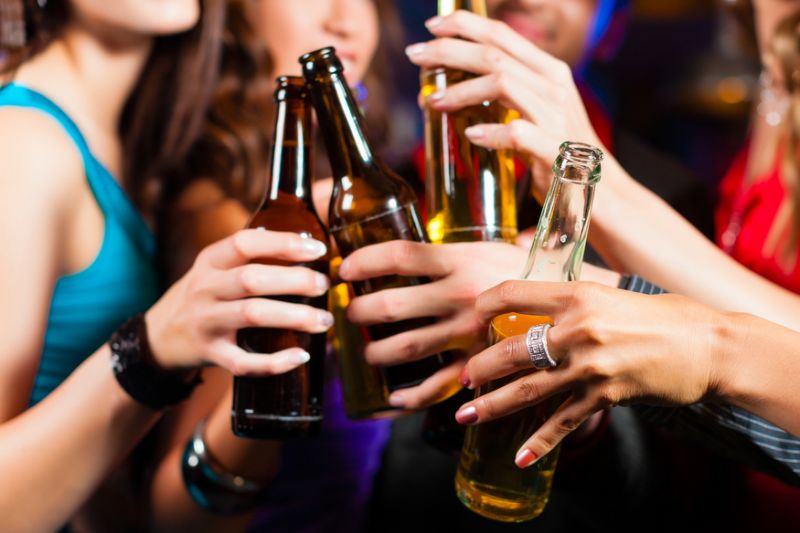Science is finally starting to explain why you eat so much when you drink


Anyone who’s ever had a lot to drink probably knows the feeling: You want to chow down on pizza, fast food or other grub; and probably a lot of it. Now, a new study in mice may offer a possible explanation for this desire to overeat: Alcohol may activate some of the brain cells that normally make people feel hungry.
Previous research has shown that people like to stuff their faces after drinking alcohol, which has been named “the apéritif effect,” but so far it has been a bit of a mystery what the biological reasons behind this are.
Thanks to this new study, the researchers say it may be because major components of the brain’s feeding circuits are activated by alcohol; specific hunger-promoting brain cells known as Agrp neurons.
“Our data suggest that alcohol sustains fundamental appetite signals, and does not just disinhibit their behavioral manifestation,” wrote Dr. Denis Burdakov, a pharmacology professor at the Francis Crick Institute in London, and lead author of the study.
To test their findings, the team blocked these neurons in some mice, which stopped the drunken mice over-eating.
This finding is in line with the results of a study in humans published in 2015 in the journal Obesity, which also found a link between alcohol consumption and eating more food.
The researchers also looked at the mice’s brains throughout their experiments, and found that certain brain cells, called Agrp neurons, that normally promote hunger were activated after the mice were injected with alcohol but not after they were injected with saline. Moreover, when the researchers artificially inhibited the activity of those neurons in the mice, the mice stopped overeating, the researchers found.
Still, as it was in mice, the findings may not be directly applicable to humans. We need more studies in humans to make that leap. For example, the mice were injected with alcohol rather than fed it, which people don’t tend to do. This stress in itself can have an impact on the brain and may have affected the results.
Either way, this is research many of us can relate to. It would be especially nice not to wake up feeling guilty about all the awful food we consumed when under the influence.
Prepared by





